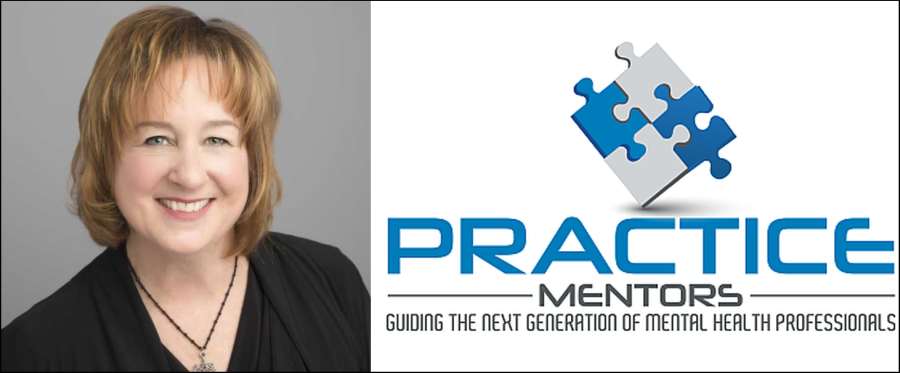The Social Convenience of Telehealth and the Client’s Best Interest

Just finished a free consult with a colleague wrestling with a "telehealth client from Hell". Got me thinking more about what I really think about the telehealth option in our profession and the social convenience of telehealth:
- I don't like it.
- I think it's way over-utilized, and abused by some clients and some counselors.
- And, I think face-to-face should always be the primary option.
My Telehealth Disclaimer
So you know, I offer telehealth as an option but I don't utilize it for marriage counseling, or kids. It just doesn't work. Most of the time I require that at least the first session be done in-person in order to get a complete read on a new client. If I could completely eliminate telehealth as an option I'd do it, but it does have a place, in increasingly rare instances.
The Social Convenience of Telehealth and Why Clients Shouldn't Be Calling The Shots
We're in the HEALTH CARE profession. People come to us daily with all manner of mental issues looking to us for guidance. We need to remember that this is first and foremost about health care, and "client convenience" should never, ever, be the #1 determiner of the mental health care delivery venue. Ever. What's best for the client's mental health outcome, should be.
I dare anyone to make the case that the telehealth option would ever allow us to deliver a better standard of care than in-person therapy does. You can't do it.
If Your Cardiologist Did This?
What would you think if you needed a triple-bypass and your cardiologist would only meet with you online? All of your pre-surgery care is done online, and then he wanted to direct your surgery from another state via ZOOM, with some med-school interns actually doing the procedure?
You'd have a melt-down fit and so would I. So why do we so often default to online sessions?
Going With the Flow Got Us Where We Are
We let the Covid event mainstream the virtual option and now we won't let it go for three reasons:
- The population has been trained to use it over the past several years,
- Some of us, selfishly, won't let go of the convenience factor, and...
- The rest of us don't have the backbone to call the shots with our clients.
There, I said it. We need to take back control of the counseling environment.
But What About the Rural Communities?
Yes, telehealth is a viable, last resort option for the underserved rural communities. It's better than nothing for sure. But even our Board, by its actions, believes that in-person would be better.
Almost a year ago the Board passed a rule allowing Associates to run their own practice purportedly so "we could better serve the rural communities" by encouraging associates to move there and set up shop. (I've checked the numbers so far and there's no mass migration in progress. If the counseling community was really so worried about the mental health of the rural communities then we'd be moving there en masse, where the opportunity is, but that's not happening. We're staying where the money is.)
Summary
Part of providing therapy to people is about delivering it in a manner that WE think will best help the client in the long run. There is a place virtual counseling but face-to-face is always going to be best choice.
We've got to take back full control of the healthcare environment not only to best serve Joe Citizen, but to protect our own backsides (I didn't even get into that!).
What's your telehealth policy look like? Comment below.
Plan Smart. Be Safe. Serve Others.
Kathleen Mills, LPC-S, CEAP

Got An Opinion?
These posts are my beliefs based on my a) 32 years of practice as a mental health provider and b) my own research. Whether you agree or disagree, please feel free to leave your civil, constructive comments below. I try very hard to back up my liberty-based statements with my own experience and/or verifiable facts and I would ask you to do the same. You do not need to be logged in to leave a comment.
The Counseling Landscape Workshop Series
The Counseling Landscape Workshop Series Everything we teach is based around The Counseling Landscape. That’s the body of information you need to know in order to run a successful practice, a lot of which is required by BHEC. Completing this series of workshops will put you in the top 5% of all mental health counselors trying to run a practice today and it will put you on a firm, safe foundation. Oh, and each…



In person is best, hands down. I am celebrating 20 years in private practice this year as I graduated with my Master’s in 1997! I have GADS of experience and in person is best for the clients. Yes, it equates to more effort on their part, but that is more or less the point, isn’t it? I learned a loooong time ago that the clients must work harder in session than I am working for them to experience any effective type of outcome. I remember back in grad school discussing effective outcomes and the research showing that clients must pay something (even if it were a mere $10) to effect an “effective outcome,” and that those clients who paid nothing often dropped out of therapy or just didn’t show, etc. I experienced the same thing when I accepted Medicaid (dropped that like a hot stone back in 2005)!
I do believe that virtual versus in-person is much the same. How much skin do they have in the game, so to speak? Furthermore, I have a host of clients coming to me reporting negative experiences with their “online counselor.” It seems to me that many online or virtual counselors or therapists are either very green/do not have much experience in clinical training or work or just downright do not know what they are doing!
Face-to-face is best and I am sure I could research the whys but not via google–hah! For those of you who understand what I mean, great…for those of you who do not… well, never mind then. Yes, this point could be elaborated upon; nothing trumps experience or that face-to-face/take-it-all-in encounter and perhaps I will expound upon this point in the future. For now, suffice it to say that I do offer virtual appointments but there is a marked difference. And I do prefer to meet with clients in person prior to providing virtual sessions, if that avenue absolutely must be utilized.
Well said! When I was in grad school the training seemed to center around non-verbal cues, body language, and developing the human connection. To have that human face-to-face experience was more beneficial than the actual skill set or theory that you worked from. Now it seems almost the opposite. I do think virtual has some value but not enough that it makes me think I should be doing more of it than I’m doing. I am picking who is eligible for telehealth now and this has been very helpful for all.
Thanks for your input. Keep it coming!
The tele-health genie is out of the bottle. Rural mental health is mostly agency based and pays poorly. Tele-health is a second best choice in many cases like marriage and couples work.
Today’s couples are asking for telehealth for convenience and cost. Many practices do not have bricks and sticks facilities now. Should they take on those added costs or just quit? In most situations it is an either or choice for professionals. Clients HAVE come to expect and prefer the telehealth options. Is that BEST option for their health? No, it is the new and preferred default option.
While there are some similarities between medical services and mental health services, your analogy is off base. Unless a practitioner is offering biofeedback, EMDR, Hypnosis or other interventions, the telehealth option is an “acceptable” paradigm. I do not have a bricks and sticks practice and I am now exclusively a telehealth practitioner. That said I have worked in both a private practice and agency practices that were solely bricks and sticks. As a practitioner, I miss the important professional connections and feedback missing in a solo telehealth practice. Dealing with the tough clients online is draining, but doable at least in the short term.
Unless ALL Texas practitioners agree to discontinue offering telehealth to clients and/or our Board disqualifies telehealth as an accepted option, we have to get creative in how we make the service as effective as we can. I think that is where what you are doing becomes valuable. Just by raising these issues, we have to do some thinking about possible answers. So thank you for your posts here.
Paul Sawayer #8040
You’re right about that genie. We’re not squeezing him back in any bottle I know of.
Sounds like, you, too, think in-person is usually best and, as I stated before, telehealth does have its place. I’m just concerned about potential abuse by both clients and counselors, and the trouble this relatively new frontier exposes us all to. (I didn’t really touch on that in my post but it adds an entirely new layer of exposure to seeing clients vs in-person only.)
Thanks for the feedback and keep it coming, will ya?
I’d have to respectfully disagree with you on this. While I personally prefer in-person therapy more than video sessions, I also recognize that video sessions can be as effective as in person. And the research to date backs that up. I only do couples online if they are together on the same screen (not in 2 different locations) because I need to see their interactions.
The convenience factor is true and I certainly have people who I see online because to come in means a solid 2 hours out of their work day (because of travel time) rather than 1 hour. That is a big difference. There is also research evidence that shows that in-person clients drop out more often than virtual clients (https://www.apa.org/monitor/2020/07/cover-telepsychology is one such article). I have only had a couple of clients who just didn’t do well with video sessions and we discussed it and decided to continue in person.
I know very talented and successful counselors who have virtual-only practices. It certainly isn’t for everyone, but if I’m being really honest, part of my preference of in-person over virtual is because I enjoy the in-person interaction more. Is that any worse than doing an online session because it is convenient? Both are filling a need of mine.
All of this being said, none of this can be used as a blanket statement one way or the other. For some, in-person just works better. For some, video sessions are just as effective. For some therapies and techniques, video sessions just don’t work well (Gestalt techniques, for example) but for others it works equally well (CBT, DBT, SFBT, Brainspotting).
Keep making me think!
Hi, Audra! Been awhile. Thanks for chiming in.
While I have no doubt that virtual has a place, my primary concern is that it’s being used in instances where it shouldn’t be, for a number of reasons. That’s all. It has a place!
Wouldn’t surprise me a bit that “in-person” experiences a higher drop-out rate than virtual, there’s more “friction” involved in completing the task. Good point. From here, it becomes a math equation as to which produces a better outcome for the client, an in-person visit with it’s drop-out rate, or (a probable) less effective virtual appointment (also with an accompanying drop out rate). If I can get them to come in I’m always going to default to that. If not, virtual is going to be a viable option.
I, too, very much enjoy the face-to-face with my clients but while our style preferences might be a fun conversation to have, what’s best for the client far outweighs my personal consulting style preferences, don’t you think?
Sounds like we’re closer to agreement on most points than not, Audra.